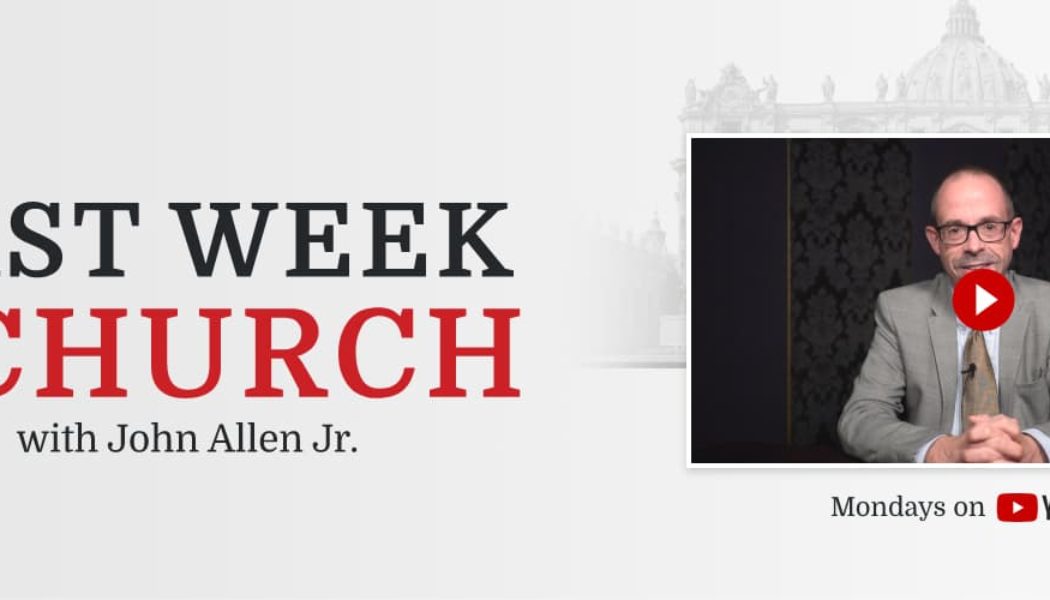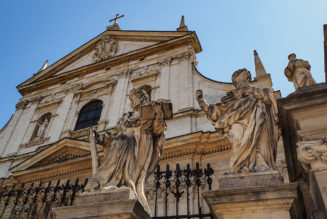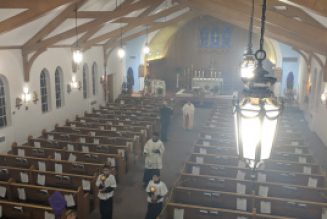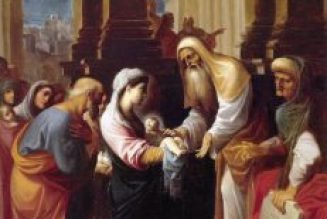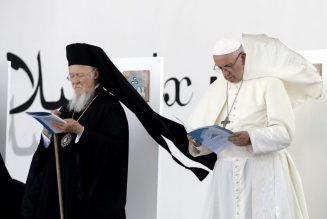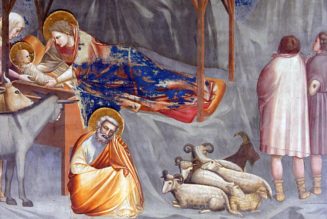ROME — Ahead of the feast of Sts. Peter and Paul, Pope Francis welcomed a delegation from Ecumenical Patriarchate Bartholomew I of Constantinople on Monday, urging Orthodox and Catholic faithful to not “squander” the “dramatic crisis” caused by the COVID-19 pandemic.
The delegation is in Rome this week to celebrate the feast of the patrons of Rome, marked on June 29.
The “scourge” of the pandemic, the pope said in his remarks, “has tested everyone and everything. Only one thing is more serious than this crisis, and that is the risk that we will squander it, and not learn the lesson it teaches. It is a lesson in humility, showing us that it is not possible to live healthy lives in an unhealthy world, or to go on as we were, without recognizing what went wrong.”
Francis also warned against the “senseless notion” that the world can go back to what it was, relying on “false securities, habits and projects that aim exclusively at pursuing wealth and personal interests, while failing to respond to global injustice, the cry of the poor and the precarious health of our planet.”
Christians too, he said, are called to reflect on whether “we want to go back to doing what we did before,” as the pandemic had not happened. According to the pope, the present crisis is an invitation to “distinguish, discern and sift” between what is enduring and what is passing.
Quoting the Apostle Paul, Francis said that what endures “is love, because while everything else passes away, ‘love never ends.’”
“Far from a romantic love, closed in on our personal feelings, desires and emotions, this love is concrete, modelled on that of Jesus,” the pope said, adding that the Gospel promises abundant fruit not to those who acquire riches for themselves, or to those who seek their own advantage, but to those who generously share with others.
The pope also told the ecumenical delegation that every crisis represents a crossroads: “We can withdraw into ourselves, seeking our own security and expediency, or we can be open to others, which entails risks but also God’s promised fruits of grace.”
The time has come, he said, for Christians working towards full communion to give further impetus to their efforts to break down “ancient prejudices and definitively overcome harmful rivalries,” perhaps with the two Churches walking more closely together, without ignoring the differences that still need to be resolved through dialogue.
“The witness of growing communion between us Christians will also be a sign of hope for many men and women, who will feel encouraged to promote a more universal fraternity and a reconciliation capable of healing past wrongs,” Francis said. “This is the only way to the dawn of a future of peace.”
After the audience with the pope, the delegation from Constantinople met with the Pontifical Council for the Promotion of Christian Unity, headed by Cardinal Kurt Koch.
On June 29, they will attend the Mass presided over by Francis in St. Peter’s Basilica for the Feast of Sts. Peter and Paul.
Follow Inés San Martín on Twitter: @inesanma
Join Our Telegram Group : Salvation & Prosperity
